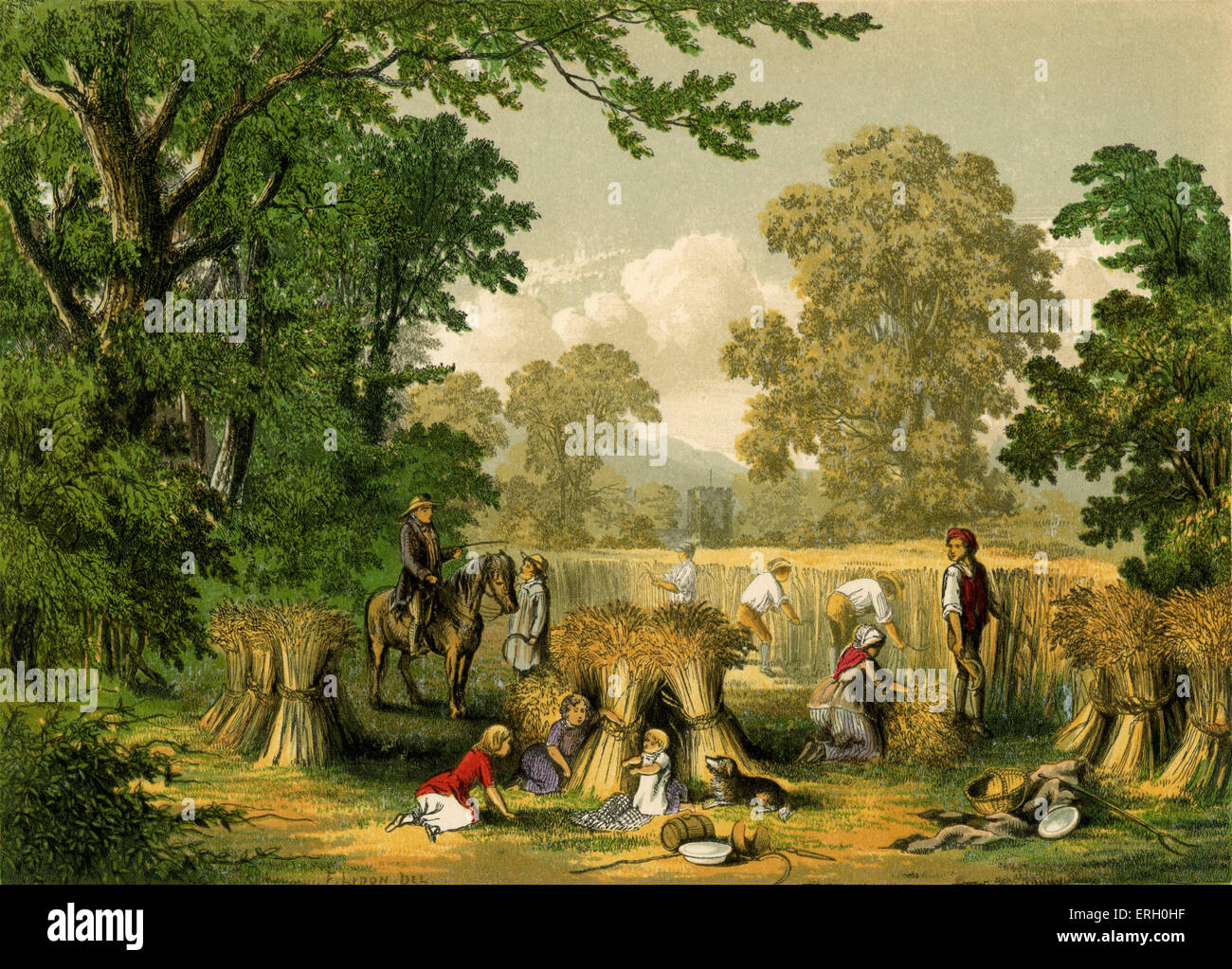| Wed, Feb 5, 2025, 08:30:47 AM
Current System Time:
|
Forum Main>>Readers Club>>English>> Summary and analysis of the poem Elegy written in a country churchyard |
| Page: 1 |
Mr.Love ™
PM [1]
Rank : Helper
Status : Super Owner |
#1
## Elegy Written in a Country Churchyard: Summary and Analysis
Summary:
"Elegy Written in a Country Churchyard" by Thomas Gray is a meditative poem that explores themes of mortality, the limitations of social hierarchy, and the enduring power of simple life. The speaker, wandering through a rural churchyard, contemplates the lives of the buried villagers. He reflects on their humble existence, their unfulfilled potential, and the universal human experience of death. The poem concludes with a somber acceptance of the natural order and a plea for humility.
Analysis:*Part I:
Setting: The poem opens with a vivid description of the churchyard, bathed in evening light and filled with the sounds of nature. This tranquil setting creates a contemplative mood, preparing the reader for the reflections to follow.
The Villagers: The speaker observes the simple headstones, each marking the life of a common villager. He imagines their past lives, their hopes, and their dreams, highlighting their quiet dignity and the inherent equality of all in death.
Social Critique: Gray subtly criticizes the social inequalities of his time, suggesting that the lives of the villagers were limited by their circumstances. The poem emphasizes the potential that remains unfulfilled due to poverty and lack of opportunity.
Part II:
The Speaker's Reflections: The speaker contemplates his own mortality, acknowledging his own inevitable death. He expresses a longing for a life of simple contentment, free from the pressures of ambition and social climbing.
The Power of Nature: Gray utilizes the imagery of nature to emphasize the universal cycle of life and death. He contrasts the fleeting nature of human existence with the timeless permanence of the natural world.
The Poet's Role: The speaker acknowledges the limitations of his own poetic talent, recognizing that he, too, will be forgotten in the vastness of time. This humility underscores the poem's central message of the shared human experience.
Part III:
The "Humbler" Life: Gray celebrates the virtues of simple living, highlighting the value of hard work, honesty, and genuine community. He contrasts the peaceful lives of the villagers with the "pomp" and "noise" of the powerful.
The Churchyard's Embrace: The speaker accepts the inevitability of death and finds solace in the knowledge that all, regardless of social standing, are ultimately united in the churchyard.
Final Reflections: The poem concludes with a powerful image of the "rude forefathers" of the village sleeping "soundly" beneath the soil, their earthly worries finally laid to rest. This image reinforces the poem's theme of acceptance and the enduring peace of the natural order.
Themes:
Mortality and the Cycle of Life: The poem explores the universal human experience of death and its impact on individual lives.
Social Inequality: Gray subtly critiques the social hierarchy of his time, highlighting the limitations imposed on the less fortunate.
The Power of Nature: The poem uses nature imagery to symbolize the enduring forces of life and death.
Simplicity and Humility: Gray emphasizes the value of a simple life, free from ambition and striving for external recognition.
The Legacy of the Unknown: The poem acknowledges the forgotten lives of ordinary people and celebrates their quiet dignity.
Style:
Elegiac Tone: The poem is characterized by a somber and reflective tone, appropriate for its theme of death and loss.
Formal Structure: Gray uses a traditional elegiac structure with iambic pentameter and an ABAB rhyme scheme.
Imagery: The poem is rich in visual, auditory, and tactile imagery, creating a vivid sensory experience for the reader.
Overall, "Elegy Written in a Country Churchyard" is a profound and moving meditation on the nature of life, death, and the enduring power of simple humanity. It is a timeless poem that speaks to the universal human experience and continues to resonate with readers centuries after its writing.**
|
| Reply |
| You are not logged in, please |
| Home | Top | Official Blog | Tools | Contact | Sitemap | Feed |
| Page generated in 0.2 microseconds |
| FRENDZ4M © 2025 |

